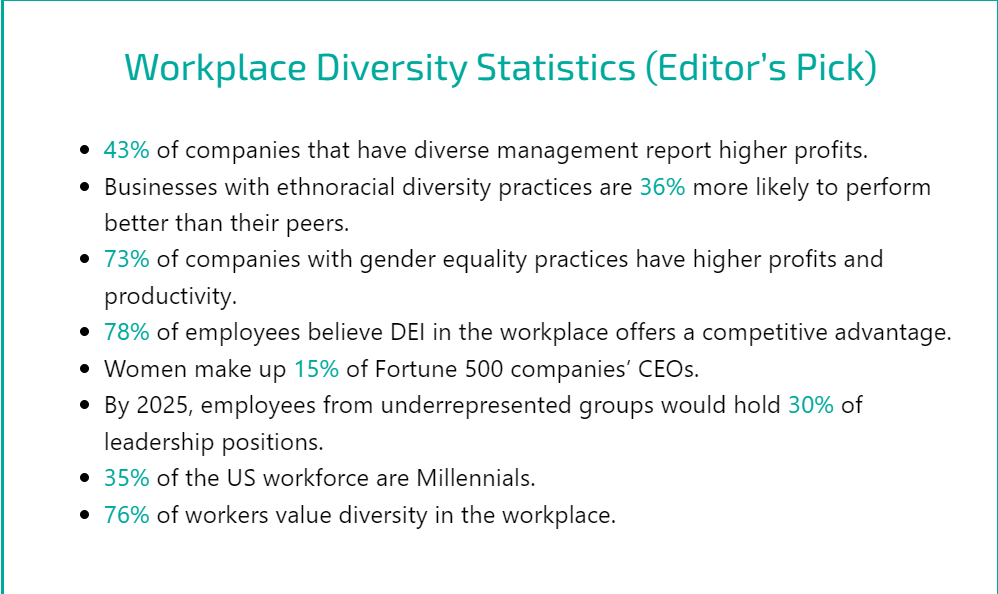
DEI is Easy
So, here’s the thing: a lot of people are saying that DEI just doesn’t work.
They’re pointing to the past four years, both in the US and globally, and saying that even though statistics prove that diverse companies are better positioned to capture new markets, with higher markets comes better performance and ridiculously higher revenue. It makes you wonder, is DEI (Diversity, Equity, and Inclusion) not working, or is it more about how we create and implement DEI initiatives?
Change is Not Easy.
One MarketHER member who is a minority female on an all-white male leadership team was asked to lead the DEI charge where she works. She was curious why the torch was being passed to her before her colleague even had a chance to begin. “Word on the street is,” he explained, “DEI isn’t working.” Given that he, too, belongs to a minority group, she expected him to be empathetic. “I was surprised,” she admitted, “but I get it; everyone wants to belong. So given the opportunity to assimilate, some simply will not have the courage to take a stand.” Additionally, there’s the fear of losing one’s job. Or fear of change itself. So, we’re not here to judge.
When questioned about his unwavering commitment to organizing marches despite inevitable violence and sleepless nights in jail cells, Martin Luther King Jr. once stated, ‘We must look our adversaries in the eyes and force them to face humanity”. King knew that the winning strategy was to disarm fear and facilitate collaboration. The pursuit of equity can only be won if those who feel threatened by DEI can see the benefits to the bottom line.
Recognizing the Benefits is Easy
Embracing DEI will not happen overnight. Yet, when companies do not prioritize DEI, they risk alienating employees and customers who value diversity. Employees will feel excluded, unsupported, and undervalued, decreasing engagement, productivity, and retention. In contrast, a company with a healthy DEI culture benefits from increased employee engagement, innovation, creativity, and better customer satisfaction.
Check the numbers:
According to a study conducted by McKinsey, companies with diverse executive teams are 33% more likely to outperform their peers on profitability. Additionally, companies with gender and ethnically diverse teams have a 25% higher likelihood of achieving above-average financial returns.
However, a company’s responsibility to prioritize DEI extends beyond its bottom line. By choosing to prioritize DEI, some companies are proving that it’s possible for everyone, regardless of race, gender, ethnicity, sexual orientation, or religion, to be a valued and respected team member and feel a sense of belonging. Employees thrive in company cultures that foster equal opportunities instead of holding to traditions that avert leveling the playing field.
Easy Adjustments Any Company Can Implement
In the article, 6 Ways To Level The Playing Field, Forbes writer Bianca Miller Cole outlines key components companies can implement to help ensure equal opportunities for all employees, including mentorship. Mentorship can help foster positive relationships within the company. Companies can include mentoring in managerial and departmental KPIs.
In Tara Jaye Frank’s book, The Waymakers, Tara explains how building relationships is the key to equity in the workplace.
“Curiosity breeds familiarity. Familiarity makes way for trust. Trust builds relationships. Relationships open doors of opportunity. The only way we achieve equity is together.” – Author Tara Jaye Frank, The Waymakers
Easy Adjustments Every Individual Can Make
Effective communication is a soft skill we are all continuously honing. According to Inc.com, bridging the communication gap between men and women is essential to building better workplace relationships.
We’ll leave you with this, the video below is a light-hearted visual aid that explains how you can jump start your personal journey to embracing diversity, equity, and inclusion.
The MarketHER Group Supports DEI by
Supporting Women Marketers
The MarketHER Group supports women marketers’ professional growth and development by facilitating community, peer-2-peer learning, one-on-one mentorship and leadership training.
If you are a CEO, CMO, or HR manager, we encourage you to sponsor a woman marketer or work with us to facilitate a mentorship program in your company. Women are an invaluable asset to any company. By investing in the success of women marketers, companies unlock their full potential and drive long-term employee engagement, innovation, and profitability.

